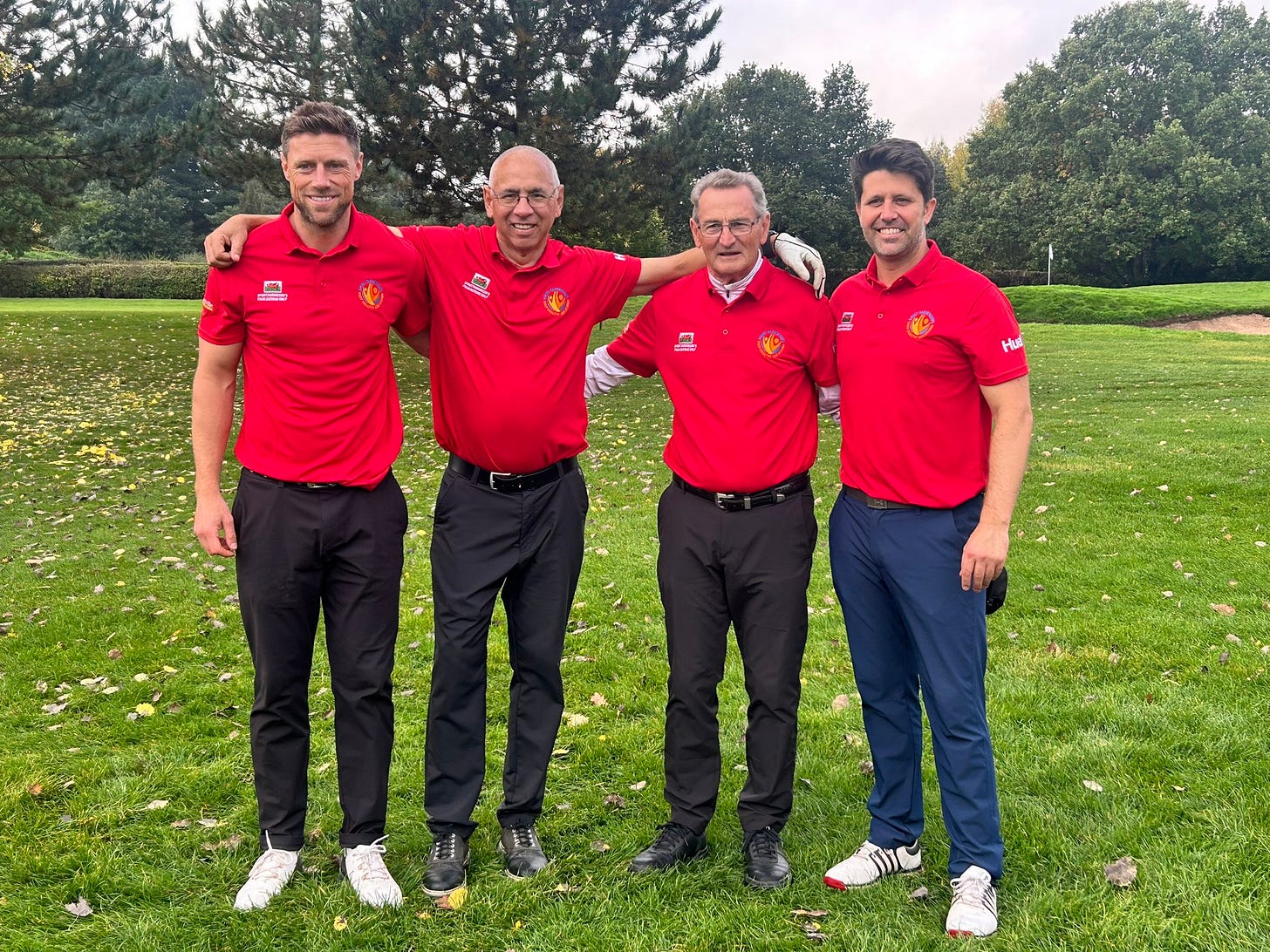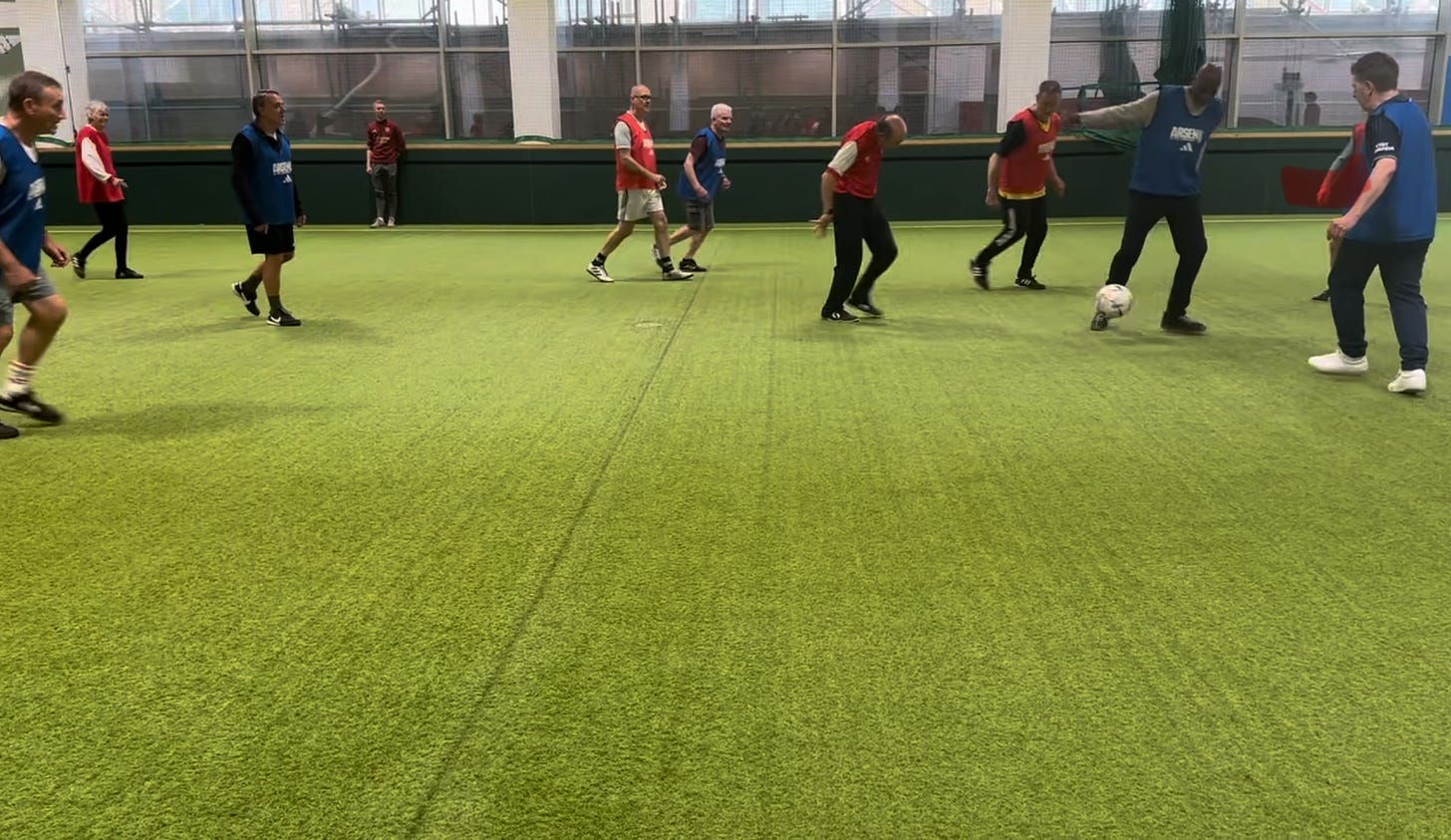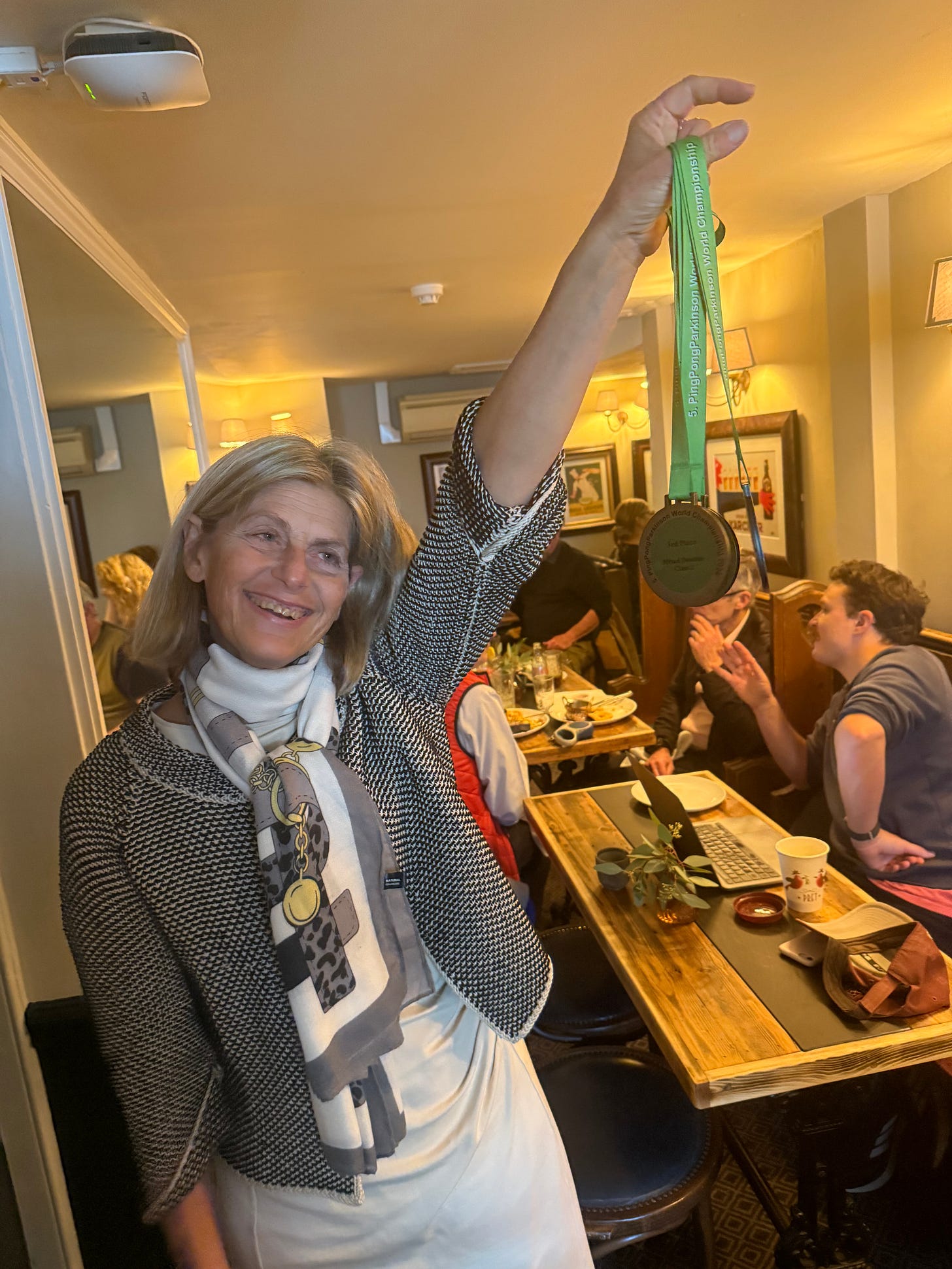Movers and Shakers: Sport!
In this week’s episode of Movers and Shakers we return to a subject we’ve covered before - the beneficial effects of sport for people living with Parkinsons’s. What’s different this time is that we recorded this episode live in the middle of a major sporting event
A lean mean Movers and Shakers team - just me, Nick “the Judge” Mostyn and Paul Mayhew-Archer - pitched our tent at the Belfry, the legendary Warwickshire golf course which has hosted the Ryder Cup four times. But our visit coincided with a far more impressive event - the Four Nations Golf Tournament organised by Sport Parkinson’s. This features 40 golfers with Parkinson’s and 40 celebrity and sponsor golfers.
We gathered in the evening of the first day of the tournament with an audience that had just come off the fairways. Nick Mostyn, a keen golfer himself, described what he had seen:
“I saw today some extraordinary golf. I saw players going onto the tee with gross dyskinesia, then momentarily the dyskinesia stopped. And I saw balls going miles straight down the fairway. “
We are joined on the panel by the man who started a movement to get Parkies involved in golf and a host of other sports, the extraordinary Charlie Appleyard, founder of Sport Parkinson’s. Charlie has the extreme dyskinesia that the judge described seeing among many of the golfers, his limbs are all over the place, yet he has a golf handicap of 9.8 as compared with Nick’s 22.7.
Charlie has the zeal of a missionary in promoting the idea that sport is the only way to slow the progression of Parkinson’s:“It's clinically proven. Two and a half hours of exercise a week is clinically beneficial to symptoms. “
He contrasts the benefits of sport with what he has seen in advances in medication since he was diagnosed eight years ago: “There really is no advancement at all in curative treatments. So that's really depressing.”
We are also joined by Andy Hobbs, the treasurer of the England Parkinson's disease Golf Society. He says people with Parkinson’s are often shy about playing with able-bodied friends, fearful that they will have to explain an attack of dyskinesia or freezing:
“That's not something anyone has to explain about themselves in our golf society, because everyone understands. So you don't have to think about your Parkinson's, you don't have to justify your Parkinson's, you just turn up with a great bunch of lads and have a fun time playing golf.”
While the judge is an all round sportsman, playing tennis, riding his horse and skiing, Paul Mayhew-Archer and I are rather embarrassed by our indolence. Paul hated sport at school and has awful tales of being mocked by teachers. I have always loved sport, but been mostly terrible at it, picked last at football and put in goal where I tended to let the ball through my legs.
But recently I gave a talk to a walking football group that meets at Arsenal’s Emirates Stadium and was invited to have a go afterwards. It was a surprisingly joyful experience - many people like me had always been rubbish at sport but the coaches encouraged us through a series of exercises learning ball control before a short game.
I had to learn to keep in the lane painted on the floor of the indoor sports centre next to the stadium, and not to break into a trot. But after ten minutes I scored what was my first goal in a competitive football match for at least fifty years. So I can now smugly say that I’ve scored at the Emirates.
But my achievement pales into insignificance compared with what Gillian Lacey-Solymar has done. She phoned in a report from Slovenia, where she was taking part in the World Ping Pong Parkinson’s Championship. She took up table tennis last year and is convinced it has done her a lot of good, particularly by getting her to do something that people with Parkinson’s find hard - dual processing, doing two things at once: “I mean, you're hitting the ball, and at the same time you're strategising, . You're thinking, hang on, if I hit it there, they’ll hit it there, etc. So your brain never switches off for a second.” And it turned out after we recorded this episode that Gillian, who had no record of sporting prowess, was a whizz at ping pong, winning the Ladies Singles and getting medals with her doubles partners.
Back at The Belfry we heard all sorts of moving stories from our audience about the power of sport to bring people together, as well as giving them some measure of control over their symptoms.
We ended with a rallying cry from Charlie Appleyard. He told us about an event called the TRY-athlon, to be held at the Twickenham Stoop next June, where visitors will be able to learn about 25 sports and exercise regimes. And he made this plea;
“You've just got to get your two and a half hours up there, running with the dog or walking football, walking, cricket. But if anyone with Parkinson's is not doing it -sport, or exercise - please, please, please, please, please, start doing it.”
Note
Some people who were distressed by remarks made by Sir Nicholas Mostyn in a BBC TV News report about assisted dying got in touch to say they felt he had painted an unduly negative picture of what faces people with Parkinson’s at the end of their lives. Sir Nicholas has responded with this piece on our website.
A reminder that you can contact us with comments and questions at this address: feeedback@moversandshakerspodcast.com




Nicholas Mostyn is right in what he says about how the Assisted Dying Bill fails to help those with PD and others suffering from conditions that have intolerable effects on one’s life and where death within six months, as well as being an irrelevant factor, cannot be predicted. One might choose an early death both to bring to an end to intolerable daily living and to avoid a painful and unpleasant death.